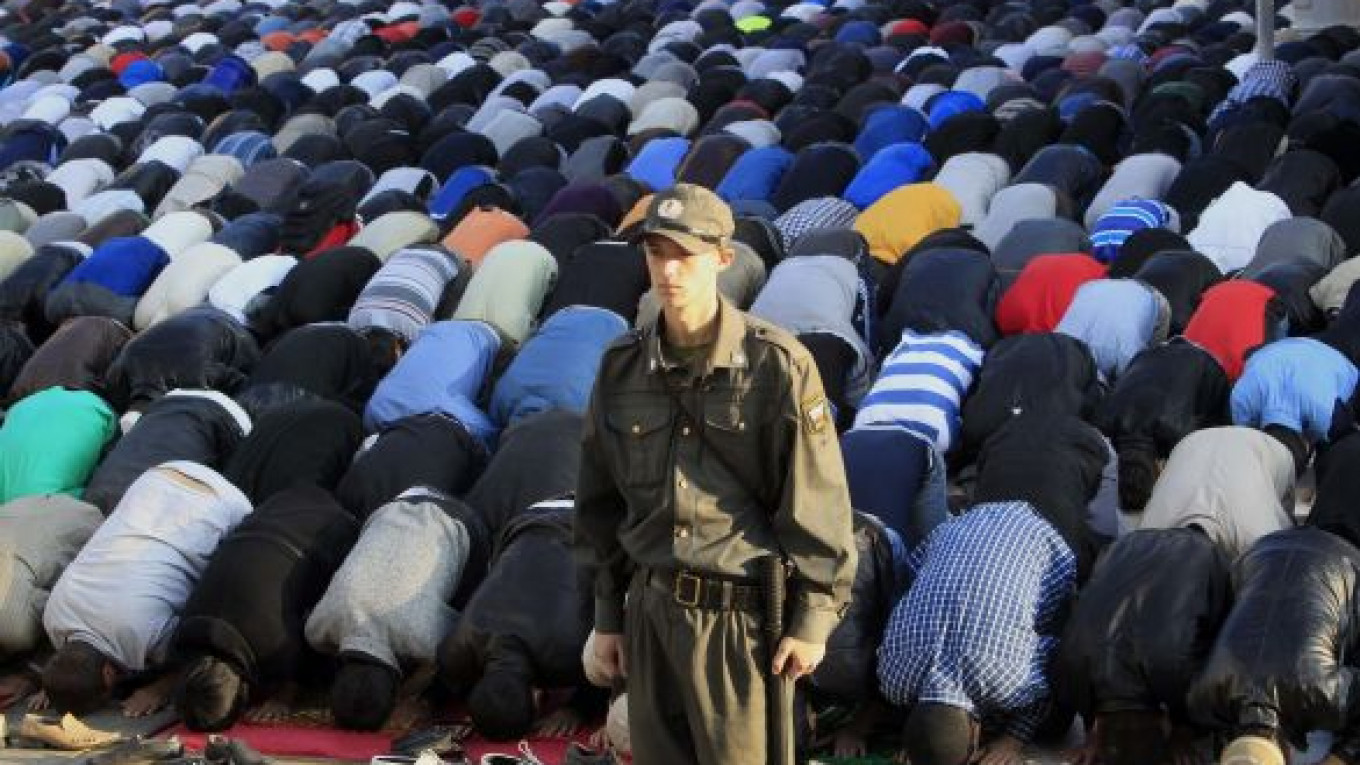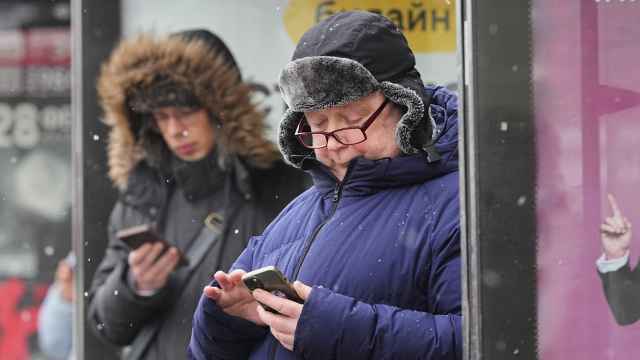Almost 200,000 Muslims prayed on city streets and public places Sunday to mark the end of Ramadan, while their spiritual leaders bickered over how to solve the shortage of mosques.
The biggest gathering took place around the Cathedral Mosque next to the Olimpiisky stadium and Prospekt Mira, where some 90,000 worshippers participated in the traditional Eid al-Fitr or Uraza-bairam prayer, the Council of Muftis said.
City officials said about 185,000 Muslims gathered at various locations in the capital, while the Council of Muftis put the overall figure at 190,000, according to a on its website.
The prayers took place under heightened security after terror attacks injured the mufti of Tatarstan and killed his deputy last month.
Moscow only has four mosques to accommodate its Muslim population of an estimated 2 million.
Council chairman Ravil Gainutdin suggested constructing one new mosque in each of the city's administrative districts.
"We have put this question to city authorities. … Our requests are being considered," he told reporters before the start of the prayers Sunday morning, RIA-Novosti reported.
Attempts to construct new Muslim prayer houses have been thwarted in the past by opposition from locals who do not want the buildings in their neighborhoods.
Gainutdin's proposal came after a rival mufti, Albir Krganov, claimed that City Hall was planning to build a massive new mosque in the city's outskirts.
The prayer house for up to 60,000 worshippers could be constructed close to a metro station on the Moscow Ring Road, Izvestia reported Friday, citing Krganov and a source in City Hall.
But the Council of Muftis quickly rejected the report by saying the Cathedral Mosque should remain the city's main Muslim prayer house. The council administers the historic Mosque and is currently overseeing its massive reconstruction.
The Council of Muftis also questioned Krganov's authority.
In a statement on its website, the council said the Bashkortostan-based Central Spiritual Board of Muslims did not recognize Krganov's Spiritual Board of Muslims in Moscow and Central Russia.
"Creating parallel structures is always aimed at dividing and weakening," the said.
Apart from the Council of Muftis and the Central Spiritual Board, the All-Russia Muftiyat and the Coordination Center of Muslims in the North Caucasus also claim to represent large numbers of the country's estimated 16 million Muslims.
Related articles:
A Message from The Moscow Times:
Dear readers,
We are facing unprecedented challenges. Russia's Prosecutor General's Office has designated The Moscow Times as an "undesirable" organization, criminalizing our work and putting our staff at risk of prosecution. This follows our earlier unjust labeling as a "foreign agent."
These actions are direct attempts to silence independent journalism in Russia. The authorities claim our work "discredits the decisions of the Russian leadership." We see things differently: we strive to provide accurate, unbiased reporting on Russia.
We, the journalists of The Moscow Times, refuse to be silenced. But to continue our work, we need your help.
Your support, no matter how small, makes a world of difference. If you can, please support us monthly starting from just $2. It's quick to set up, and every contribution makes a significant impact.
By supporting The Moscow Times, you're defending open, independent journalism in the face of repression. Thank you for standing with us.
Remind me later.







